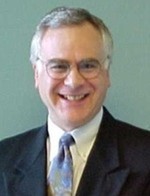ASC 2014
ASC 2014 Inaugural Event

Thanks to the more than 175 attendees who came to the inaugural event for the Division of Policing, which took place on Thursday, November 20th at the 2014 ASC Conference in San Francisco.
The event featured opening remarks by the District Attorney of San Francisco George Gascón. He was followed by a special activity led by eminent professor Wesley Skogan in which 10 policing scholars and practitioners had 90 seconds each to say what they think will be the future of policing research.
George Gascón | Wesley Skogan | Dennis Rosenbaum, George Gascón, & David Klinger |
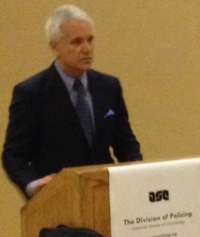 | 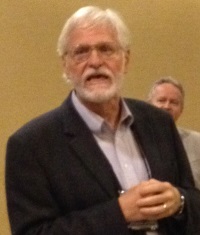 | 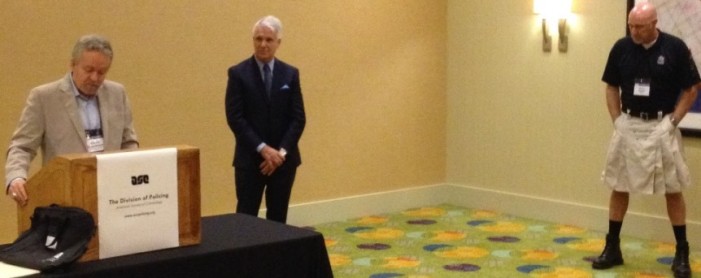 |
Below we include the remarks from each of these distinguished speakers and pictures from the event:
Lorie Fridell

Associate Professor in the Department of Criminology at the University of South Florida. She is formerly Director of Research at the Police Executive Research Forum.
“We need to better and more comprehensively measure the nature and quality of the interactions on the street between police and community members.
We need to better document the incident-by-incident interactions–whether it is a traffic stop, a stop and frisk, consensual stop, whatever.
Why do I think this is important? Police have achieved success in terms of key policing outcomes such as reduced crime, increased traffic safety, and reduced fear of crime. These successes were linked to enhanced measurement capabilities.
So with all those successes in policing and several decades of community policing, why do we still have Fergusons?
The community members who are angry–and they are not all in Missouri–are not angry about crime rates, traffic accidents, or clearance rates. A significant segment of the population is angry about the nature of police interactions. Many people in low income, high minority neighborhoods experience–or perceive that they experience–disrespect, verbal abuse, excessive use of authority, and bias. They perceive little accountability.
These interactions remain hidden and elusive in terms of measurement, which hinders potential for change. As one police chief told me: “I can’t manage what I can’t measure.”
So let’s advance the measurement. With whom are police interacting? With what frequency? With what purpose? What communications, actions and outcomes?
With a focus on measuring individual encounters, we could impact on policing in an important way; and we could ultimately impact on the everyday lives of individuals.”
Jack Greene
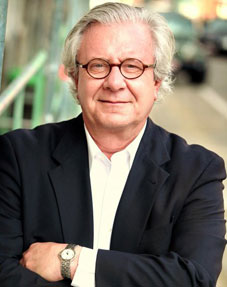
Professor of criminology and criminal justice at Northeastern University and the former dean of the College of Criminal Justice.
This event importantly takes police studies full circle from its’ initial founding in 1941 as the National Association of Police Officials led by August Vollmer to today’s ASC. Yet throughout much of this transformation the study of the police moved to a more peripheral place in the study of crime. So now Policing and the ASC have come full circle, congratulations!
I illuminate this small slice of history to challenge our emerging group to keeping the ideas of police and policing in a big intellectual and methodological tent. In my view, the scope and breadth of police studies has narrowed over the years, and it will be incumbent on this body to champion increasing the scope and depth of police studies moving forward.
Expanded quantitative study of the police should be accompanied by increased qualitative and historical study as well. And where quantitative study is preferred, integrating contextual analysis of policing as it happens on the street, using mixed methods, is essential to understanding not only what works in policing but also why it works and for whom it works. In policing context is essential.
I challenge our emerging Police Section to be ecumenical in advocating for and celebrating a wide range of theory and method, much to the mission of more fully understanding the police, what they do, for whom, and with what consequences, intended and unintended. Thank you.
Stephen Mastrofski
University Professor of Criminology, Law and Society at George Mason University and Director of its Center for Justice Leadership and Management.
I want to talk about what we study.
Daniel Nagin tells us that crime control is all about the police, but we also need to remember Egon Bittner’s insight that the police are not all about crime control.
So, when evaluations of police policies and practices are conducted, I hope that we as researchers will be attentive to the broad range of functions and expectations that society holds for police.
We all know that, in addition to crime control, police are expected to: maintain order; provide or facilitate a host of public services; pursue equity and justice; promote collective efficacy; acclimate immigrants to their new environment; and many other things.
What strategy yields the most crime control is not necessarily the best policy choice.
And crime control is only one consideration among many that ought to be taken into account when deciding how to structure and staff police organizations.
Over the last couple of decades our research community has tended to narrow its focus on crime control.
Criminologists understandably focus their attention on crime, but that’s not a good reason to limit ourselves when evaluating a public institution with a much broader mandate.
We need an enriched and more diverse set of criteria for evaluating our police.
It oughtta’ be a crime for police researchers to study only crime control!
Nola Joyce

Deputy Commissioner of the Philadelphia Police Department
Police research must focus more on how research and innovation is diffused within and across police departments.
Findings from quality randomized, control, experiments will not benefit the practice of policing if we fail to study how police can and do use those finding in everyday practice.
Process matters!
If we want to change the way policing is done in this country, we must understand, at the ground level, the practice of policing and how to infuse change into that practice.
This demands excellence in qualitative research that meets the ‘gold standard’ for this type of methodology. We must provide as much time, resources, and prestige in understanding the “how” of policing as we do in understanding the “what” of policing.
This knowledge gap must be closed to advance both the practice of policing, as well as the practice of police research.
Laurie Robinson

Laurie Robinson is Robinson Professor of Criminology, Law and Society at George Mason University.
We’re in an era – and the recent midterm elections reflected this – when Americans are singularly unhappy with government. And who represents the face of government on our streets more than state and local law enforcement?
It’s close to 50 years since the Johnson Crime Commission called for greater professionalization of police and more attention to building community ties. After five decades, one would have hoped for real progress, but in the wake of Ferguson – and the broader problems it highlighted – it’s clear a lot more is needed.
And over the last two decades, we’ve seen the huge federal focus on community policing under COPS – backed by $14 billion in grants – but at a Justice Department event last week, every former COPS Director agreed that, whatever the progress, there are MANY Fergusons out there.
From my conversations with police leaders around the country, there’s a growing view that we’re poised for a re-examination of the fundamentals of policing. And what’s key, I think, is that there is buy-in here not just from large city progressive police chiefs, but also from many more traditional chiefs in mid-size and smaller departments.
So 50 years after the Crime Commission, a recalibration is beginning, looking at the relationship of law enforcement to citizens. And this provides an important opportunity for fundamentally redefining what constitutes public safety and community justice in America….
Dennis Rosenbaum
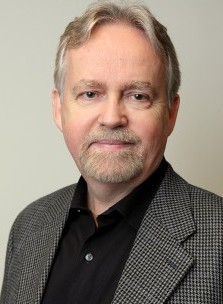
Professor of Criminology, Law and Justice at the University of Illinois, Chicago and Director of the Center for Research in Law and Justice.
I will focus on changing police organizations and police culture by changing performance metrics.
As researchers and practitioners, we have focused most of our attention on effective crime control strategies, but most police work is not about crime – it is about responding to emergencies, resolving conflicts, reducing disorder, and dealing with other problems that may lead to crime if unchecked.
The job often requires communicating with diverse groups of people – people of color, the LGBT community, victims of crime, the homeless, rebellious youth, and persons in altered states, whether facing a mental health crisis or abuse of alcohol or other drugs. These encounters require a great deal of interpersonal skill, as Vollmer was quick to point out many years ago.
However, too often the police culture within the organization continues to communicate to rookies and other officers that a “good cop” is a combat warrior who must “win” and control every encounter, punish non-compliance, and continuously hunt for bad guys.
As a psychologist, my message about behavior change is simple: All human behavior is shaped by rewards and punishments. When we begin to truly value and reward fairness, respectfulness, honesty, compassion, cooperation, listening skills, de-escalation and problem solving skills, and social intelligence, the culture will change accordingly.
The primary job of the police is not to threaten the use of force (sorry Bittner) but to do everything in their power to prevent the escalation of conflict to the point where force is needed and to persuade individuals to comply and cooperate voluntarily.
If we begin to recruit, train, supervise, promote, and hold officers accountable for the quality of service they can deliver, using new standardized performance metrics, then can we expect that police organizations will generate sustainable public trust and legitimacy.
Lawrence Sherman
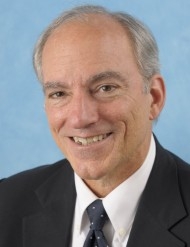
Director of the Institute of Criminology of the University of Cambridge and Distinguished University Professor of Criminology and Criminal Justice at the University of Maryland
The future of policing lies in studies of the police, for the police, and by the police, with and without academics.
The future of policing research can be found in Molly Slothower, a graduate student whose qualitative work discovered that some UK police were telling crime victims that a diversion program was letting their offenders off “easy,” making victims dissatisfied; she then launched an experiment to compare victim attitudes about prosecution vs. diversion when victims in the diversion group were told in detail the intense efforts the diversion program made to prevent future offending. In this test, victims were 42% more likely to be satisfied with diversion than with prosecution. Her study of the police led to a study for the police that was conducted with Molly by the police.
The future of policing research can be found in Jerry Ratcliffe and his team, who not only conducted an experiment in hot spots policing for the Philadelphia Police Department, but did enough research on the practices of the older vs. rookie officers to explain why a second experiment yielded a different result.
The future of policing research can also be found with people like Renee Mitchell, a Sacramento Police Sergeant who organized her own hot spots experiment that won an award from the ASC Division on Experimental Criminology;
Barak Ariel, a Cambridge Lecturer and former police inspector who designed and supervised the first experiment in police wearing body-worn video cameras with Rialto CA Police Chief Tony Farrar (then a Cambridge Master’s degree student), a study later cited by the US Judge who ordered the NYPD to wear cameras in high-frequency stop and search precincts;
Alex Murray of the West Midlands Police (UK), who founded with colleagues and served as the first chair of the now 1500-member Society of Evidence-Based Policing, whose members embrace both police and academics;
Cynthia Lum, a GMU professor and former Baltimore police officer whose efforts to make police research accessible to police and the public through the evidence-based policing matrix are an exemplar of translational criminology.
The long and important tradition of research on the causes of police behavior as a dependent variable should and will continue, both by academics and police themselves—many of them in the new category Renee Mitchell calls “pracademics.” This research will increasingly be appreciated by the police as being for the police, and not just serving as “opposition research” for those who see democratic police institutions as a unified enemy–blind to the reality of police agencies as moral battlefields between competing factions. Police who share their critics’ goals of curbing police abuses and increasing police legitimacy already find research on the causes of police behavior to add practical value in strengthening a police profession. They will welcome more and better research on racial discrimination, profiling, and use of deadly force.
The new and growing field of “evidence-based policing” is also both for the police and for the communities and victims that police serve. The Triple-T of systematic targeting, testing and tracking of the use of police resources is spreading as a policing strategy in which research is the core tool of keeping the peace. Citizens who follow this research can press police to use it to the hilt, just as medical patients now confront their doctors with medical research findings paid for by citizen tax dollars. They can demand, for example, to know why police make arrests for minor domestic violence when in one experiment it doubled the risk of death from all causes among African-American victims.
The research on the consequences of the Triple-T police decisions, treating police decisions as the independent variable, may eventually achieve a far higher proportion of all policing research than it has to date. While EBP began with fulltime academics, it is witnessing phenomenal growth in police-led experiments. The passion with which younger and mid-career police work to answer these questions of consequences is not yet found among the chief executives of most police agencies, but it is only a matter of time. The coming generations of police leaders will not only be consumers of research, but are increasingly likely to have been producers of it as well. No trend could provide greater justification for creating an ASC Division of Policing, nor for building a close bond between our new Division and the world-wide Society of Evidence-Based Policing.
Betsy Stanko
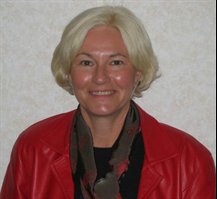
Head of Evidence and Insight at the Mayor’s Office for Policing and Crime in London. She formerly led research and analysis at the Metropolitan Police Service and is the 1996 recipient of the August Vollmer Award for the ASC.
I would like to use the 11 years inside the police service to advocate for HOW new evidence and knowledge is used and implemented to make policing better. I believe that we cannot be credible in advocating for better democratic policing without challenging the inconsistent delivery of response to public generated need.
So my 90 second plea is to encourage much better and depth research regarding ‘change’ within the police service. Clearly the message about ‘leadership’ is a common mantra. I would like to see a radical overhaul and inquiry into how best to ‘train’ and what this means in terms of transformation about HOW policing is accomplished. What is our theory of change and expectations for training? In my role in a number of national oversight inquiries (domestic violence and rape action plan), training/supervision has lurking as a ‘solution’ to many shortcomings in responses that lead to inappropriate treatment and outcomes.
Police information should be more transparent – about outcomes, the origin of logic decisions and the way in which ‘what works’ really can work and work better. Transparency is critical – and with transparency comes the burst in the bubble of masking the high overall competence of each police officer. The post code lottery of competence is costing the Metropolitan Police Service a shed load of money. There is no feedback loop linking what went wrong with pathways to improvement in a systematic way. The future of policing can only be assured through mechanisms that enable people to understand the HOW and WHY public need can be helped by a public service.
Samuel Walker
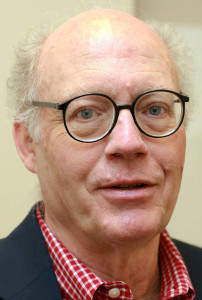
I am going to break the rule that we are to provide one idea for the future of police research and offer three. I do this to make a point, and that point became a fourth idea.
First, we need more research on police accountability, specifically the programs and practices designed to ensure that police officers on the street conduct themselves in a professional, constitutional, and respectful manner. What is the universe of those programs and practices? What works, what doesn’t? How do we measure success? How do they interact with each other?
Second, we need research on the institutionalization of police reforms. This extend far beyond accountability-related reforms to include community policing, problem-oriented policing, and in fact everything since the days of our godfather, August Vollmer. Why and how do some reforms “stick” and become embedded into police departments and a permanent part of their organizational culture? What are the correlates of institutionalization and what are the major obstacles?
Third, we need more research on the police officer subculture. There is probably more talk and less evidence on this subject than any other in policing. What are the main elements of this subculture? What are the major variations and complexities? How does it change and why? And how does it impact the first two points I have mentioned above?
All three of these subjects are closely interrelated, and my point is that all of the subjects mentioned by today’s discussants are among the moving parts that constitutes policing. I urge everyone engage in research on the police to think and write about all these moving parts so that we can begin to develop a comprehensive and holistic view of policing.
David Weisburd
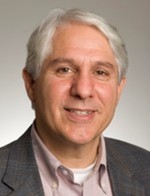
Distinguished Professor of Criminology, Law and Society at George Mason University and Professor of Law and Criminal Justice at Hebrew University
“I have a dream.” Police will someday take an “ownership” role in science (along with scholars, policy makers and the public) in which they will value science, advocate for science, and have strong involvement in science. When this happens the police mission will be enhanced, science will be enhanced, and support for science will be adequate for the responding to the myriad of challenges that the police face.
In this future the police will be knowledgeable about science because their training and professional development will be strongly linked to science. Science will be an integral part of police education and police decision making. The police will not simply be brought along for research, they will become partners in the research mission.
Police in this future will not simply ask government to provide them with the tools of policing. They will ask government to provide them with the support for science that will allow them to define what are the best tools and how to use them. They will do this because they will value science. The result will be a large infrastructure of funding for police research.
Police in the future will not only value and advocate for science they will also be active in science. There will be practitioner scientists who will work along with university scientists in developing basic research on policing, and implementing large scale experiments to test police practices. There will be practitioner scientists who participate in national research agencies and professional societies and journals.
The topics of police science in the future will not be constrained to questions that make sense in the world of universities, they will reflect the broad problems and challenges of everyday policing. This is because the police will be co-owners of science, and science will have to provide answers to the everyday problems of policing. And as in medical science this will enhance the prestige and status of police science because it will make science relevant to policing.
Finally, in this future university researchers will learn to value police as partners in the development of police science. They will value spending time in police agencies and knowledge about the everyday realities of policing. University researchers will be expected to make the scene of policing and to understand the broad parameters of the police task.
This dream about the future of policing is already becoming a reality in many places. Police have started to make the scene of science, by creating professional bodies committed to science, and by participating in research on a large scale. Researchers have begun to make the scene of policing by developing a myriad of police/research partnerships. We have much ground to cover, but we are going in the right direction.
ASC 2014 Panels
Download our handy 4-page guide to review all of the policing-related sessions at ASC 2014. Read the Oxford University Press blog post “Back to the future with the ASC’s new Division of Policing” about the founding of the Division and our inaugural event.

